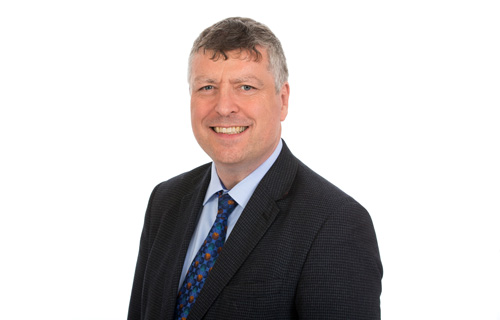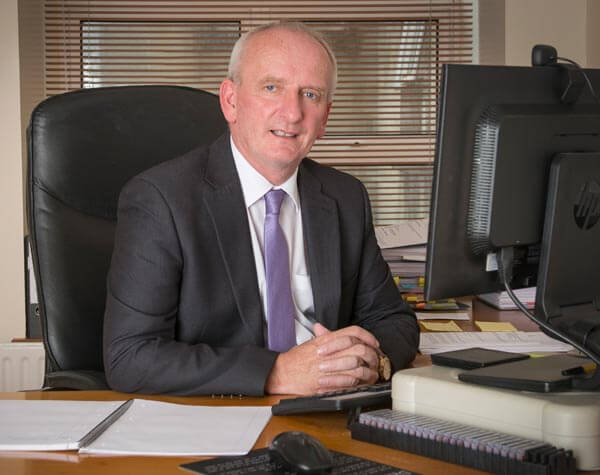

Hospitals, Waiting Lists, Urgent & Emergency Care, the Enhanced Community Care Programme, Mental Health and Disability Services are the priorities for the HSE this year, according to its National Service Plan.
The Government has allocated the HSE a budget of €23.5bn for 2024, which is 4.6% above last year’s budget.
Of this €23.5bn, €2.8bn has been provided by the Department of Children, Equality, Disability, Integration and Youth in respect of specialist disability services with a balance of €20.7bn provided by the Department of Health. This will allow for 683 new Whole Time Equivalents for disability services and 2,268 WTEs for other health and social care services.
The 2024 budget includes:
- €162.8m investment in new service developments, including enhancing mental health and disability services
- €918.7m once-off funding
- €834.7m to fund increased costs of providing the existing level of service
- Funding to support the implementation of the six new Health Regions
Mr Ciarán Devane, HSE Chairman, said, “The National Service Plan 2024 continues to move the HSE towards the goal of universal healthcare in line with the ambitions of the Government and the HSE’s Corporate Plan. In doing so, it builds on the growth in funding and in staff we have seen over the past number of years, growth which has enabled Ireland to continue to improve the health and life expectancy of the public.
“The NSP for 2024 is a continuation of the work of the preceding year and represents another year of growth. Together, the two years will see staff increase in the region of +9,000 WTE and funding by €3bn. During 2024, we will consolidate the developments of recent years, particularly around access, and ensure we deliver the increased capacity this investment is intended to provide. We want to allow the increased number of clinical staff to care for an increasing number of patients and users of our services.”
Mr. Bernard Gloster, CEO of the HSE said, “The HSE’s budget for 2024 and the increases in funding over recent years represent a significant investment by the State, which has resulted in many improved outcomes for the people we care for. This investment in our services is welcomed and has allowed the HSE to respond to sustained pressures, but not yet to overcome all of them.
“In 2024, we will continue to deliver the reform of disability services. Recruitment and retention of staff is essential to the delivery of the plan. The HSE will work with relevant stakeholders to implement a range of initiatives, including targeted recruitment campaigns for therapy professions, including therapy assistants, to increase the number of health and social care professionals.
“Of particular significance for 2024 is the establishment of the six new HSE Health Regions and the change in size, purpose and function of the HSE at national level. Designed to bring about integrated care, effective decision-making and local focus, these new structures will mark a significant departure from the organisation that was in place over the past 18 years.”
Strengthening control processes and performance monitoring for 2024 will include delivering savings, particularly through reducing the hours of agency staff used by around one third. This reduction in agency staff hours means that we will need to increase productivity and safely see, assess, treat and care for more people with the same or less staff, without reducing service quality or overburdening our staff.
Key HSE Priorities for 2024
Hospitals: Continue to deliver safe, timely access to hospital care through:
- The development and implementation of a three-year Urgent and Emergency Care Plan (2024-2026).
- Delivery of an additional 22 beds to bring total critical care capacity to 352 beds.
- Completion of phase 1 of the development of major trauma centres.
- Increasing activity targets in the areas of inpatient, day case, outpatient and GI scopes by 5% above the 2023 outturn.
Addressing waiting lists and times
- The HSE says the multiannual Waiting List Action Plan will reduce and reform waiting lists, spanning acute and community settings beyond urgent and emergency care.
- “In 2023 the HSE responded to more than 100,000 people above what had been targeted.
- “The HSE reduced the time people are waiting to levels not experienced in many years, the reduction in those waiting longest was particularly beneficial.
- “2024 will see a repeat of a targeted plan. The vision remains the delivery of a modern, world-class, public health service for all, in which everyone has equitable, timely and transparent access to high-quality scheduled care, where and when they need it.
- “Enabling the advancement of modernised care pathways is only one example of how teams in the HSE are working in innovative ways to ensure delivery on this vision.”
Delivering urgent and emergency care
“While urgent care services are delivering more care to more patients each year, this has resulted in services being under pressure almost all year round.
- “The HSE Board is overseeing a multiannual Urgent and Emergency Care (UEC) Plan (2024-2026) as part of a new UEC Programme that is focusing on what is working well.
- “The HSE will continue to focus on the core tasks that we know reduce the difficulties for the public and staff, as is often evident in our emergency departments.
- “Having left behind the concept of winter planning the HSE will, in 2024, improve access to urgent and emergency care by implementing the year one commitments of the new multiannual UEC Plan related to the four pillars of priority focus: hospital avoidance, emergency operations, in-hospital operations and discharge operations.
- “In parallel, longer-term enabling programmes will add much needed capacity, an increased number of GPs delivering care to our population and key digital requirements for integrated care.”
Community
“The Enhanced Community Care Programme (ECC) will continue to roll out nationally to ensure more people can access healthcare in their local community rather than within the acute hospital setting. These measures will include:
- “Delivery of over 141,000 patient contacts through 28 Integrated Care Programme for Older Persons community specialist teams, and over 228,000 patient contacts through 28 Integrated Care Programme for Chronic Disease community specialist teams.
- “Completion of up to 240,000 community radiology tests alongside up to 161,000 tests across areas such as echocardiography, spirometry and natriuretic peptide blood tests, totalling over 400,000 tests.
“In addition, through Older Persons’ Services, 22m home support hours will be provided to 54,100 people”.
Mental Health
“In 2024, we are committed to promoting our population’s mental health.
- “Our focus is on prioritising child and adolescent early intervention, enhancing early interventions for adult mental health services and improving access to person-centred mental health services.
- “Targets for mental health services are more than those set for 2023, with the target for the number of children and adolescents to be seen in 2024 25% higher than the 2023 outturn.”
Disability
“We will continue to collaborate with patients and service users to ensure we continue to build resilient, responsive health and social care services that deliver for patients and service users.
- “Specialist community-based disability services transferred to the DCEDIY in March 2023 and NSP 2024 is, therefore, the first NSP to be approved by Ministers from two separate Government departments.
- “An extensive and ambitious programme of work is ongoing to improve timely access to services, including in the areas of day, respite, multidisciplinary, residential, home support, neurorehabilitation and personal assistance services.
- “This year there will be a targeted strategic focus on recruitment and retention of the workforce for disability services.”

